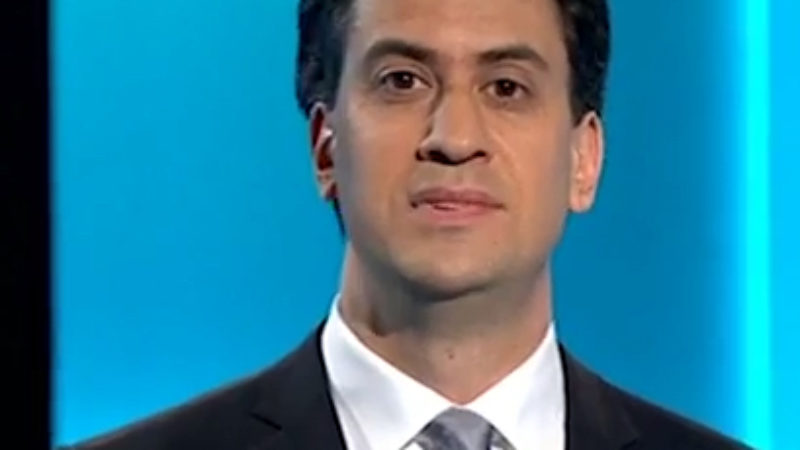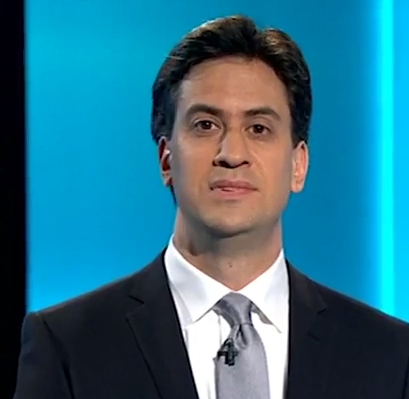
A debate designed by David Cameron to be confusing, unclear and somewhat chaotic did its job last night. Seven leaders speaking on multiple topics, repeating pre-scripted answers (even, it seemed, when they were challenging each other) wasn’t an enlightening experience. As someone who follows politics closely, I learned little from the debates. I can’t imagine a floating or first time voter would have gained much more from this exhausting two hour political marathon. Or tuned in for the whole show. Or watched at all.
I did an ad hoc straw poll before the debate. Whenever I was speaking to friends or family I’d mention that the debate was on in the evening. The response was invariably “oh yeah that’s tonight isn’t it?”, in a way that very much implied they wouldn’t be watching. In a way that implied they’d just finished work and were going to do something fun, thank you very much.
And that’s what Cameron (and Lynton Crosby) wanted of course. A TV show that’s complex, featuring people you’ve never heard of, at the start of a four day weekend. A sort of unwatchable, headache-inducing reality TV show. And he’ll hope that just by being there, and by being Prime Minister, he’ll be the person you’ve heard of and that’ll be enough.
I thought Cameron would perform better this week than last week – indeed I even suggested that he was the leader I was worried about. Instead he decided to barely perform at all.
For large chunks of the night it was easy to forget he was even on the stage. Stuck over on the edge of the stage, he was only drawn into the show during one of the occasions where other panel members directly – rather than obliquely – attacked his record in government. Truth be told Cameron won’t be too dismayed by that. It appeared a deliberate tactic – like a footballer taking the ball into the corner for ninety minutes. After ducking and dodging a head to head debate with Miliband for months, he managed to escape last night’s debate without a knockout blow. He’ll now peacock about claiming that he’s debated Miliband when he did anything but. Despite Miliband focussing his fire consistently on Cameron – to the extent that he missed opportunities to attack the other leaders – Cameron barely gave him the courtesy of a riposte.
And now Cameron doesn’t have to go head to head with anyone again before election day. That’s more than a month with minimal scrutiny, for those who are keeping count.
Yet Miliband will be pretty pleased with how last night went too. His was at his most fluent and persuasive when he talked about the better future he wants to build for young people, and the contrast with Cameron’s resolute focus on the past. On immigration though, the difficulty of Labour’s position was revealed – Miliband, the son of immigrants – simply doesn’t look comfortable repeating it. But on the NHS and the economy he more than held his own, even managing to land a rare blow on Cameron over his pre-crash support for Labour’s spending plans. And although he didn’t get an opportunity to significantly damage Cameron (and took some whacks himself) he was able to present himself as the only realistic alternative as Prime Minister. And although his performance didn’t have any of the highlights of last week’s Paxman interview, nor did it back up the Tories “Miliband is hopeless” frame that they’re seeking to hammer home. Miliband last night continued to nail the lie that he is unsuited to the task at hand, by going toe to toe with Cameron and five others and achieving at the very least a score draw. Considering the gap between Miliband and Cameron on leadership ratings, that’s not to be sniffed at, and may further erode the perceived gap between the two men in polls over the coming days.
And what of the smaller parties? Well one of the major flaws of last night’s debate (perhaps any political debate) was that it was all about electoral tactics. Who needed to take votes off who was far more important than winning an argument. So Plaid leader Leanne Wood was far more inclined to attack Labour than anyone else – because that’s her competition in Wales (Plaid aren’t Labour’s competition in Wales, they’re currently 4th on 11%). Likewise Farage wanted to attack everyone (pulling a full on, “PC GAWN MAD” strop at one point), but most of his fire was focussed on Cameron.
The only person shorn of that pressure was Sturgeon. The SNP leader believes (with some level of evidence) that she’s going to get a strong result in Scotland in five weeks time. She didn’t need to go after individual parties, and was even able to drop much of the SNP’s usual divisive anti-Labour rhetoric in a bid to “win” the debate nationwide. One poll (YouGov) suggested she was successful in that, and all of the polls suggest she performed well across Britain as a whole. There were still the verbal ticks that indicate a desire to break up a country – she can’t say “Britain” and always talks about “Westminster” (divisive nationalism dressed up as simple anti-politics) – but it would be churlish not to acknowledge that Sturgeon (a relative unknown quantity for many viewers) performed very well on the night. LabourList readers suggested that Sturgeon would be the biggest threat to Miliband in the debate, and they weren’t wrong.
And the rest?
Farage was what we’ve come to expect. He was full of bluster and venom. He didn’t come to show he can be Prime Minister, he came to rile up the 20% of the public who either feel the country has gone to the dogs because of immigration, feel the country doesn’t work for them or – in some cases – just want to turn the clock back. He was – unsurprisingly – the leader who gave the most vile answer of the night, attacking immigrants with HIV, as if such a group were either numerous or the root cause of the NHS’s problems. Because Nigel is a route one, one dimension politician. Housing? Immigrants. NHS? Immigrants. Congestion on the M4? Immigrants. The polls suggested that Farage was both the best and worst performer of the night, which says it all really.
Natalie Bennett. Talked….so….slowly…as…if…she…had…been…told…that…if…she…did…everything…would…be…fine. It wasn’t. She came with low expectations of her performance which she did nothing to dispel. Not the breakthrough the Greens needed.
And Plaid’s Leanne Wood? She was the leader you’d almost certainly not heard of before. And – save for a few brighter flashes – she didn’t do much to change that.
What is clear though is that Ed Miliband has a fairly daunting task ahead of him on April 16th when he faces Sturgeon, Farage, Wood and Bennett in the “challengers” debate. Farage will smash into him from the right. Sturgeon will do the same from the left. And both Wood and Bennett will come to Sturgeon’s aid. Thinking about that gives me a very uncomfortable feeling in the pit of my stomach. I bet Ed feels the same.
And then there was Clegg. Poor Nick Clegg. There will be no Cleggmania this morning. His face remained in permenant hangdog mode. He started the night with an apology, and that set the tone. The lasy five years hang around his neck like a millstone. In five weeks the electorate will put him out of his misery.
Labour people were spinning that Miliband had won a clear victory. So was there a clear winner last night? No – despite the attempts of all parties to claim that they’d triumphed, the polls suggest that no-one “won” outright – which means of course that everyone can with some justification claim they were the real winners. But what Miliband achieved is no less significant for that fact. He performed ably and calmly in the face of persistent attacks. Unlike Cameron he didn’t shy away from the glare of attention. And he put himself on an equal footing with the PM. And the polls suggested that he was at the very least one of the most popular performers on the night. Considering the (Tory driven) popular conception of him, that’s no mean feat.
Yet for all of the words that will be written about this debate (and gosh, I’ve written a lot myself, thanks for staying until the end), it’s likely that this whole event will be forgotten by the end of this long weekend – and that’s exactly what Cameron wanted.
Easter egg anyone?
p.s. – Moderating a TV debate is like refereeing a football match – the best performances are the ones that go without significant comment. Julie Etchingham deserves real praise for handling an event that could have been more Royal Rumble than structured discourse. I still hated the format, but Etchingham ensured that it was watchable.





More from LabourList
Ashley Dalton resigns as health minister for cancer treatment
Paul Nowak column: ‘Labour must focus on the basics’
‘Labour’s two-child cap victory rings hollow while asylum-seeking children remain in poverty’